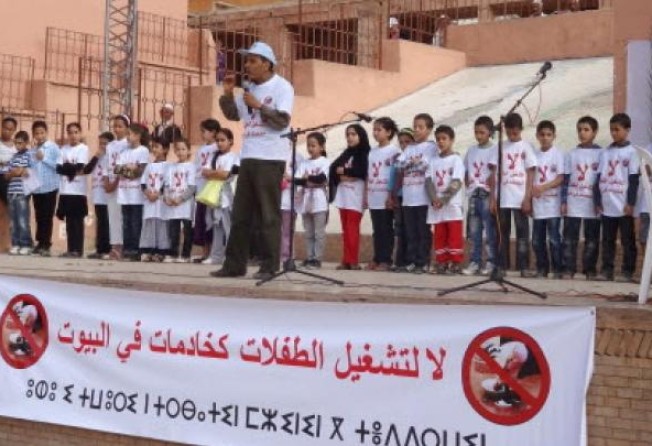Rights group alarmed over Morocco’s treatment of maids

Morocco has made progress in reducing the number of girls working as domestic servants but much more needs to be done, Human Rights Watch reported on Thursday.
Tens of thousands of girls under the age of 15 are still working as domestic servants in Morocco, and they are subject to abuse and poor conditions and have no legal protection, the group said. However, its research says their number is less than seven years ago, due to efforts to raise awareness and enforce labour laws.
“The government says the amount of child labour has declined and school enrolments have increased,” said Jo Becker, the group’s child advocacy co-ordinator. “Our sources tell us that the number of child domestic workers in Morocco has declined but it is important to note that no one knows the total number of domestic workers.”
The US-based rights group was following up on its 2005 study that found some 86,000 girls under 15 were working as maids in violation of Moroccan and international law. While the new report said the situation in this North African kingdom of 32 million had improved, the phenomenon of child labour was still widespread
“Child domestic labour is a serious problem and girls continue to face exploitation and severe abuse,” added Becker. “Because these girls work in private homes, they are hidden from public view and it means they are more vulnerable to physical abuse and less likely to get help.”
Labor inspectors charged with enforcing Moroccan law are not permitted to inspect personal homes. So while the government has released figures showing a dramatic drop in all forms of child labour from 517,000 in 1999 to 123,000 last year, it is not clear if that includes domestic workers.
Domestic workers are also not governed by the country’s labour laws. Maids who talked to Human Rights Watch described average monthly wages of $61 and work days that stretched from 6 a.m. to midnight.
The girls often come from impoverished rural villages and are sent to the city to work wealthy homes, where many report being verbally and physically mistreated. Half of the report’s sample had dropped out of school, while a third had never attended.
A law regulating domestic workers has been under development since 2006 and the government has promised it will be on the next year parliamentary agenda.
Morocco was singled out over underage maids because the phenomenon appeared to be more widespread than in other countries, with girls starting work at even younger ages, said Becker
Sarah Lee Whitson, Human Rights Watch’s Mideast director, however, said the government has been responsive to the group’s findings.
“The cooperation we’ve had with the Moroccan government in discussing these issues and sharing ideas about these issues is in many ways a model on how Human Rights Watch should be able to work,” she said.